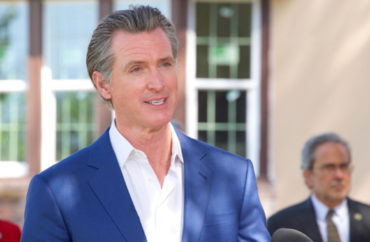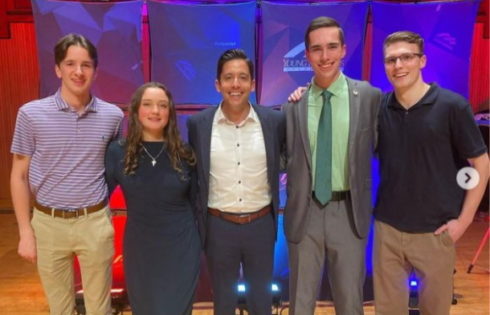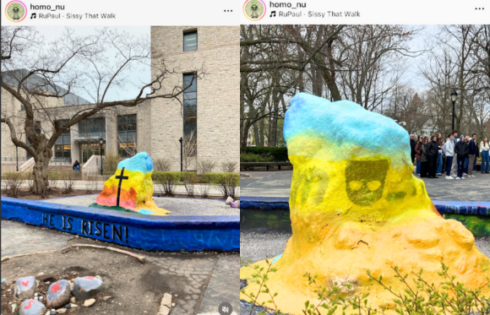
Beginning in September 2025, California will no longer allow legacy admissions at any college in the state, and now other Democrat-led states face pressure to follow suit.
“Legacy admissions were wrong from the beginning,” the editorial board of the Harvard Crimson wrote Oct. 18. “And now that affirmative action has fallen, they have become absolutely unacceptable, placing another finger on the scale for white and wealthy applicants.”
The editorial called on Massachusetts to end the practice if the school does not.
A New York Daily News editorial Oct. 2 was headlined: “Learning from California: Ban college legacy admissions and cell phones in public schools.”
New York state Sen. Andrew Gounardes, who has sponsored legislation to ban the practice, reposted the editorial on X, commenting “it’s time to pass my Fair College Admissions Act and ban unfair college legacy preferences once and for all.”
In California, Gov. Gavin Newsom signed the bill, AB 1780, into law on Sept. 30, expanding the state’s restriction to include private schools after state public schools ended the practice in 1998.
“In California, everyone should be able to get ahead through merit, skill, and hard work. The California Dream shouldn’t be accessible to just a lucky few, which is why we’re opening the door to higher education wide enough for everyone, fairly,” Newsom said in a statement.
Schools will be required to submit an annual report to demonstrate compliance with the ban, and institutions who violate the law will have to provide more details about their upcoming class, including “the legacy status, donor status, race, county of residence, income brackets, and athletic status of newly enrolled students.”
There is no specified punishment for universities that do not comply other than their names being published on the Department of Justice website.
The law most notably affects Stanford and University of Southern California, two of the state’s most prestigious private schools. In 2022, students connected to alumni or donors made up 14.4 percent of the total freshman class at USC and 13.8 percent at Stanford.
“The legislation does not take effect until September 2025. During that time, Stanford will be continuing to review its admissions policies,” a Stanford spokesperson said in a statement to The College Fix.
USC will also be reevaluating its admissions procedures.
“All admitted students meet our high academic standards through a contextualized holistic review that values each student’s lived experience, considers how they will contribute to the vibrancy of our campus, thrive in our community, benefit from a USC education and fulfill the commitments of our unifying values,” a university spokesperson told The College Fix. “We continuously evolve our recruitment, admission and financial aid programs to create a student body that is diverse in all respects, always complying with the law.”
The new policy comes less than two years after the Supreme Court’s controversial ruling that barred colleges from considering race in admissions, ending affirmative action at universities. It sparked an outcry from many on the left, including Newsom, who stated at the time that “the path to equal opportunity has now been narrowed for millions of students.”
In a recent news release, Newsom’s office explicitly linked the signing of September’s bill to last year’s Supreme Court decision.
“The U.S. Supreme Court issued a ruling last summer restricting the use of race in college admissions,” his office said. “In light of this shift, proponents of AB 1780 advocated for admissions criteria that additionally ensure that factors like wealth or personal relationships do not unduly influence admissions decisions.”
Restrictions on legacy admissions have become more popular in recent years, with Colorado, Illinois, and Virginia banning legacy admissions for public schools and Maryland eliminating it for both public and private schools. And after California’s law, pressure is increasing in other states.
Some groups are not pleased with Newsom’s decision, however.
“Given that the law applies to private schools, it is unclear how the Civil Rights Enforcement Section under the state’s Department of Justice plans to enforce the ban,” Wenyuan Wu, executive director of Californians for Equal Rights Foundation, told The College Fix. “More importantly, the ban does nothing to address ongoing attempts for racial balancing among California’s postsecondary institutions.”
She said banning legacy admissions will be a trend in progressive states going forward.
Not only is the ban a reaction to the Supreme Court’s affirmative action ruling, it also is only a few years removed from the Varsity Blues college admissions scandal from 2019, where prominent celebrities and wealthy individuals fraudulently increased their children’s chances of being accepted to elite universities. Over 50 people were criminally charged, sparking a nationwide discussion over fairness in the college admissions process.
“Hard work, good grades and a well-rounded background should earn you a spot in the incoming class,” said Assemblymember Phil Ting, who helped write AB 1780, in a statement on the day the bill was signed. “Not the size of the check your family can write or who you’re related to.”
MORE: Several universities end legacy admissions after affirmative action ruled unconstitutional
IMAGE: Sheila Fitzgerald / Shutterstock
Like The College Fix on Facebook / Follow us on Twitter





Please join the conversation about our stories on Facebook, Twitter, Instagram, Reddit, MeWe, Rumble, Gab, Minds and Gettr.